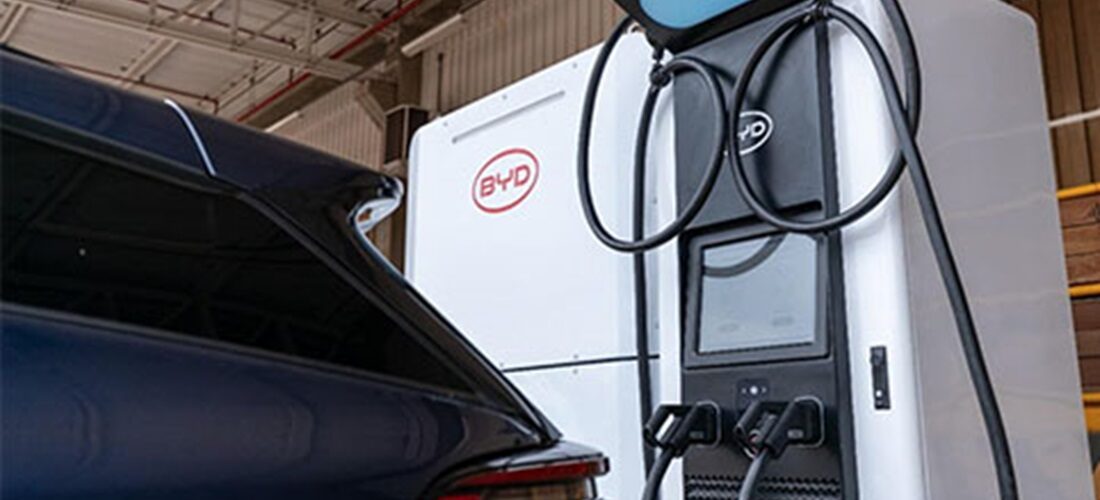
China EV makers rush cars to Mexico and Brazil amid tariff concerns
May, 21, 2024 Posted by Gabriel MalheirosWeek 202420
Chinese EV makers including BYD are rushing to ship vehicles to Mexico and Brazil in preparation for tariff hikes and other trade restrictions, Nikkei Asia has learned. That comes as Washington announced 100% tariffs on Chinese EVs on Tuesday, May 14, a move that is expected to be followed by more trade actions aimed at electric vehicles from China by the U.S. and its allies.
The rush-transportation of EVs from China to Brazil and Mexico began in March and will continue into June, a source in the shipping industry familiar with the situation told Nikkei Asia.
Brazil reinstated tariffs on electric vehicles this year, having exempted them since 2015. Fully electric vehicles faced a 10% tax from January that will increase to 18% this July and 35% in July 2026.
“Shipping container prices for the China to Brazil route have risen between four- and sixfold since late March. The container only cost about $1,500 earlier this year and now is well above $6,000,” said the source.
BYD’s EV exports surged more than 150% on the year to over 97,000 vehicles in the first quarter of 2024, of which shipments to Brazil accounted for 15,700 EVs, or around 16%, according to the company’s data.
The Chinese EV maker is also accelerating construction of its plant in Brazil to tap the booming local market, which also factored into the recent rise in shipping demand. BYD has said it also plans to build a new plant in Mexico for the market there.
BYD did not respond to requests for comment.
Mexico, meanwhile, is under pressure from Washington to keep its distance from Chinese automakers. The administration of President Joe Biden said on Tuesday that it is considering additional penalties if Chinese EV makers try to move production to Mexico to avoid the newly announced U.S. tariffs.
The Mexican government has not raised tariffs on Chinese EVs, but it has stopped providing incentives such as low-cost public land or tax cuts for producing electric vehicles in the country, Reuters reported in April.
Japanese commodity trading house Hanwa told Nikkei that the increased EV shipments from China to Mexico in recent months are likely boosted by “U.S. tariff actions for Chinese goods” and the fear of even tougher sanctions coming from Washington.
“Maybe companies are concerned about tougher sanctions if [Donald] Trump is reelected” president in November, a company representative added.
The EV shipping rush, meanwhile, has sparked a bidding war for space on cargo ships.
“Most big EV companies already have their existing contracts with shipping companies, but now they need additional allocations to get extra slots in the ships to rush-ship all those EVs to Brazil and Mexico,” said a person familiar with the situation who works at a freight brokerage in China. “So all EV companies are competing with each other trying to get the allocations before competitors do.”
As a result, overall shipping costs for the China to Brazil and China to Mexico routes have jumped in recent months.
The Shanghai Containerized Freight Index, which reflects the average freight prices for container transport, shows the cost for the China to South America route that includes ports in Mexico and Brazil, has climbed 55.8% in the three months between late January to late April, according to data from the Shanghai Shipping Exchange.
Between April 26 and May 10, the freight index from China to South America increased a further 14.6%, the exchange’s data showed.
“We are seeing a significant shipping price uptick from China to Mexico and Brazil in the past several months, driven by Chinese EV export demand,” said a manager who works at an Asian shipping company. “COSCO is the top choice for Chinese EV makers like BYD in terms of routes to the Americas, as they have government support,” the manager said, referring to the state-owned shipping giant.
By comparison, the index dropped 31% for routes to ports in Europe during the January-April period. The European Commission, which oversees trade policy in the European Union, has launched a probe into Chinese EVs over alleged unfair subsidies. The probe is due to finish by November, but the EU could impose provisional duties in July.
“We are not worried about the new U.S. tariffs on Chinese EVs per se, as we don’t sell to the country directly, but we do worry what kind of signals it sends to other countries, especially to U.S. allies,” an executive at a major Chinese EV company said after the Tuesday tariff announcement, adding that Europe, Australia and New Zealand are most likely to come up with similar tariff hikes.
Scott Kennedy, senior adviser and trustee chair in Chinese business and economics at the Center for Strategic and International Studies, said the Tuesday tariff announcement is “part of a broader swath of both defensive measures — such as export controls, investment screening and data security — and offensive investments in these same technologies.”
He added that “the administration also is attempting to coordinate its policy steps with those of like-minded countries in Europe, Asia and elsewhere.”
-
Ports and Terminals
Nov, 17, 2021
0
YTD handling at Port of Antonina already surpasses 2020 volume
-
Ports and Terminals
Oct, 24, 2024
0
Brazil plans to auction 22 port terminals by 2025, targeting R$8.7 billion in investments
-
Other Logistics
Jul, 25, 2024
0
Port of Santos on alert after inspectors announce nationwide strike
-
Grains
Jun, 01, 2021
0
Arco Norte ports share of grain exports more than doubles in 10 years



